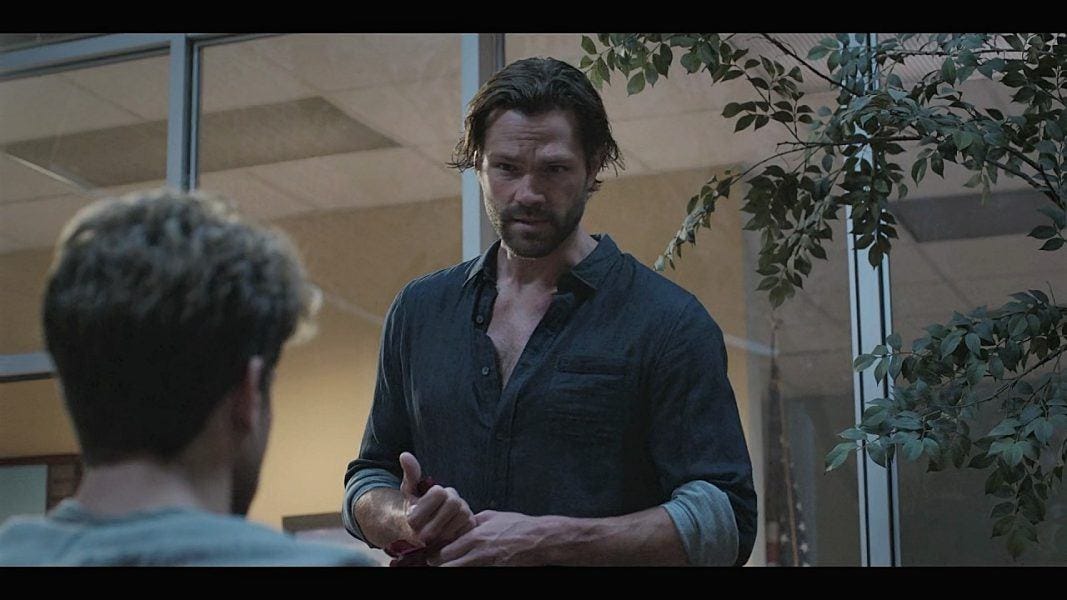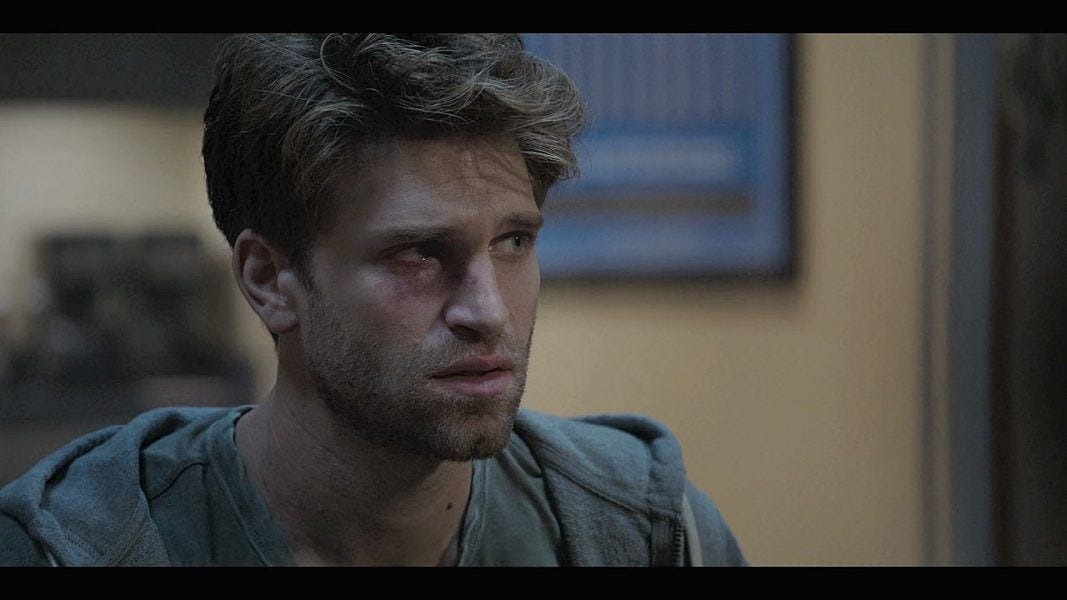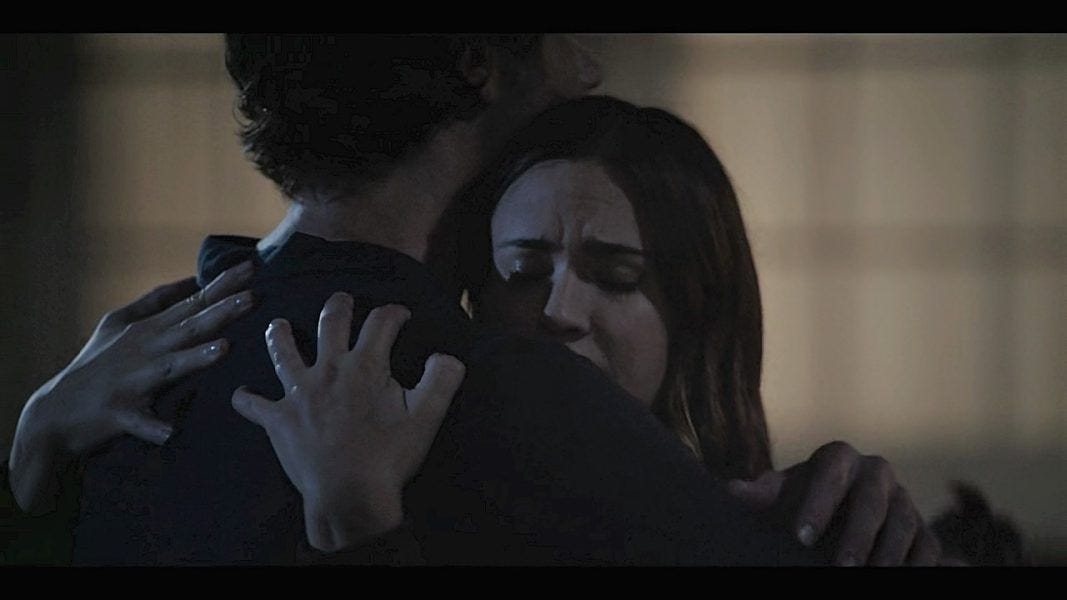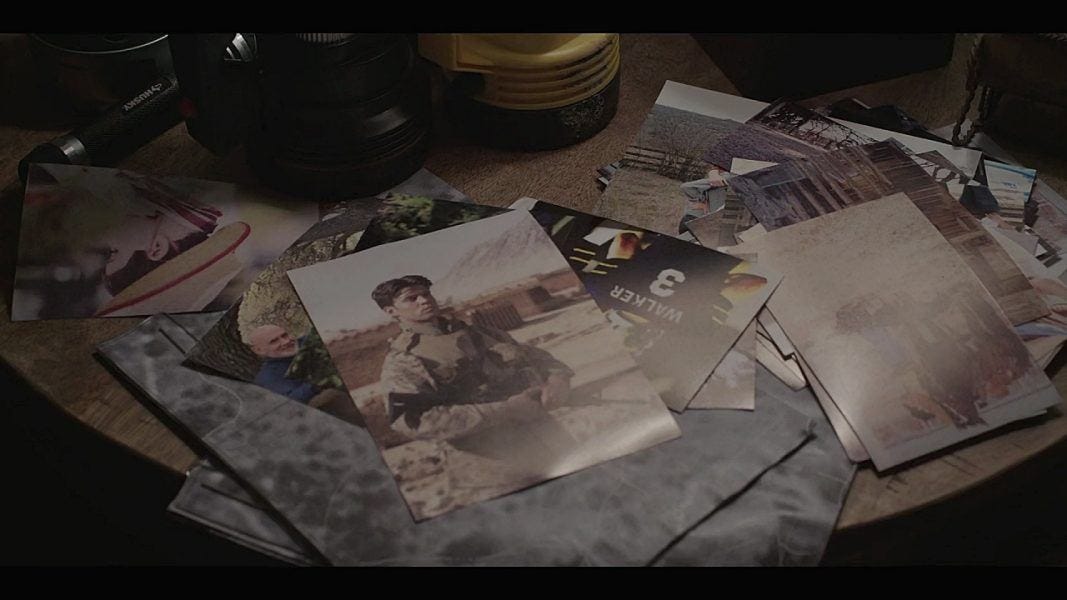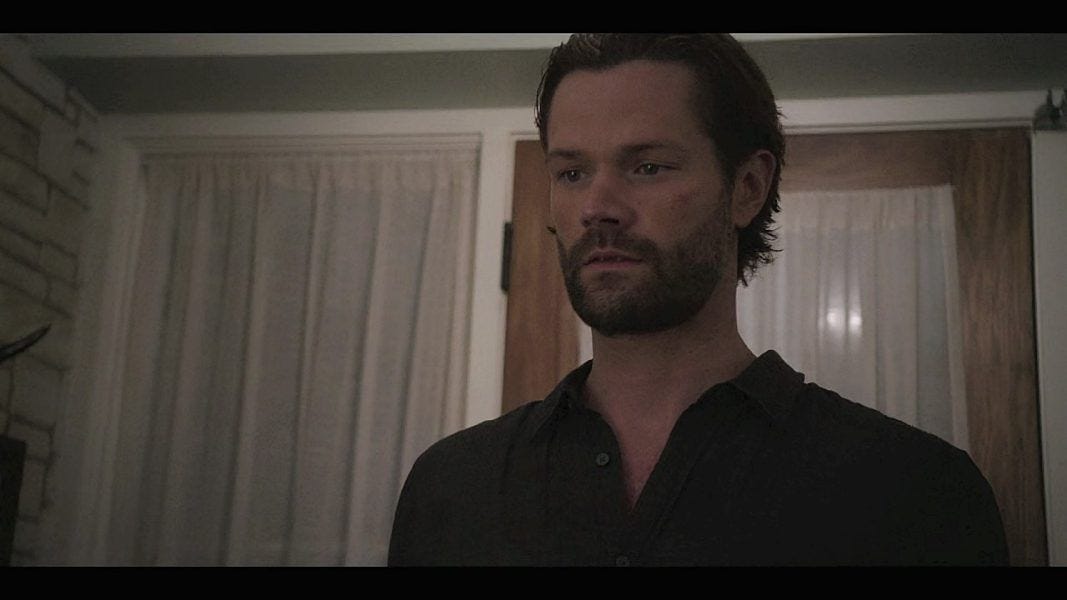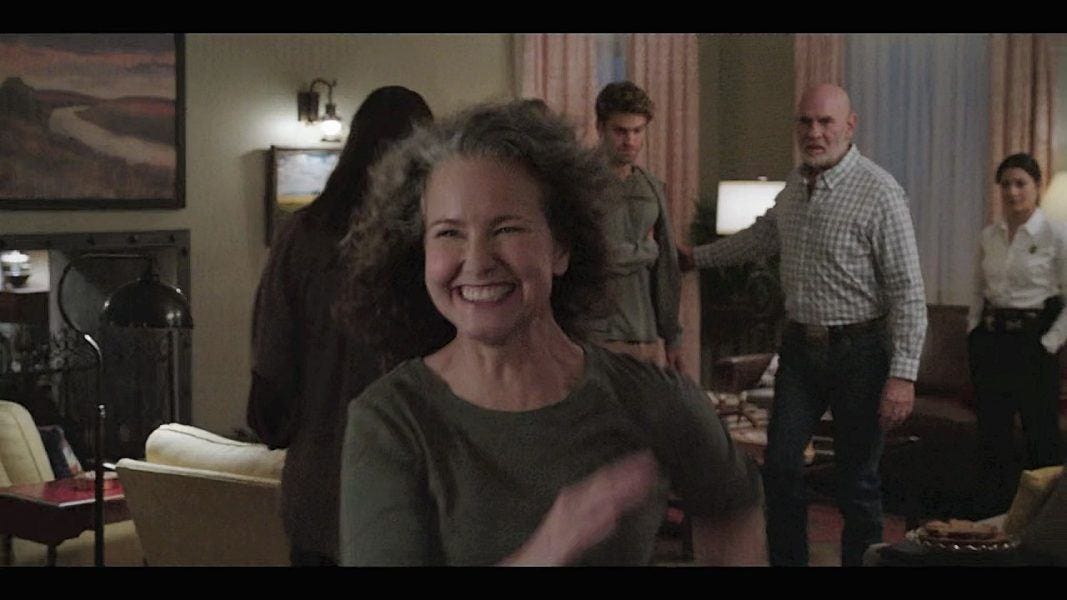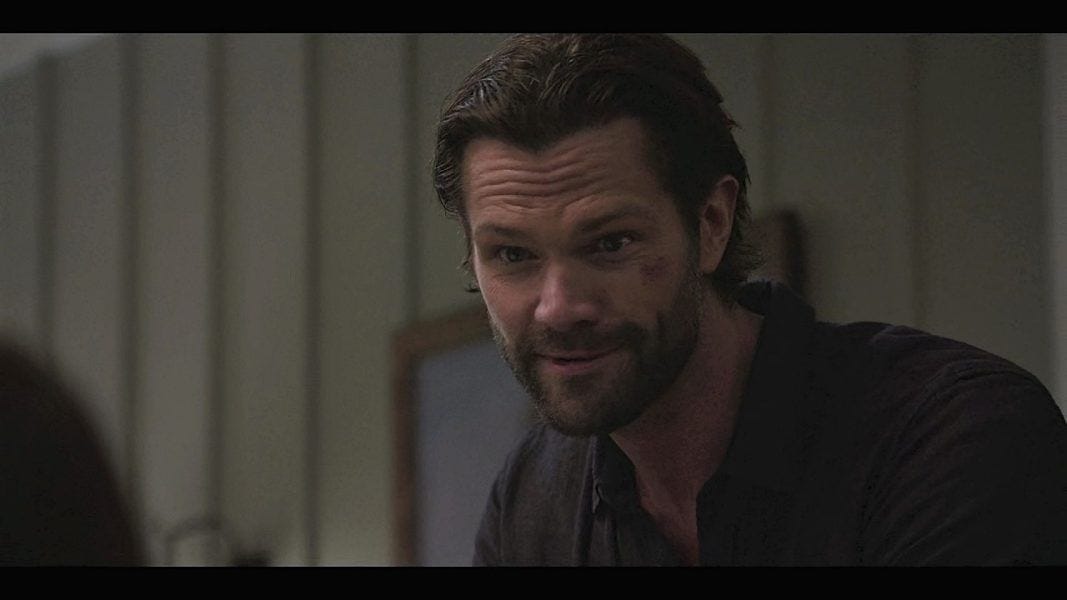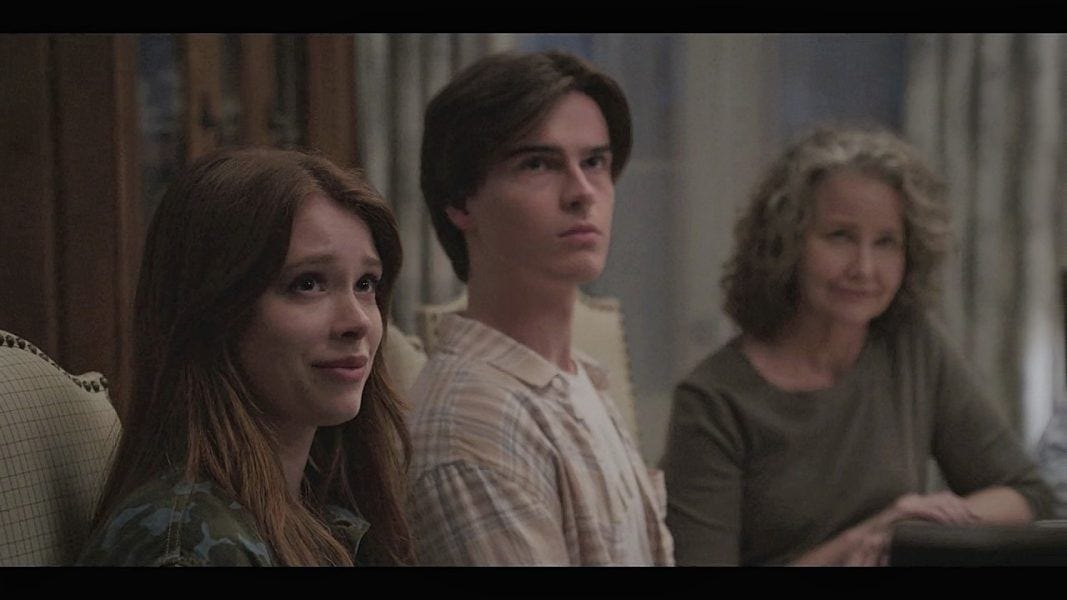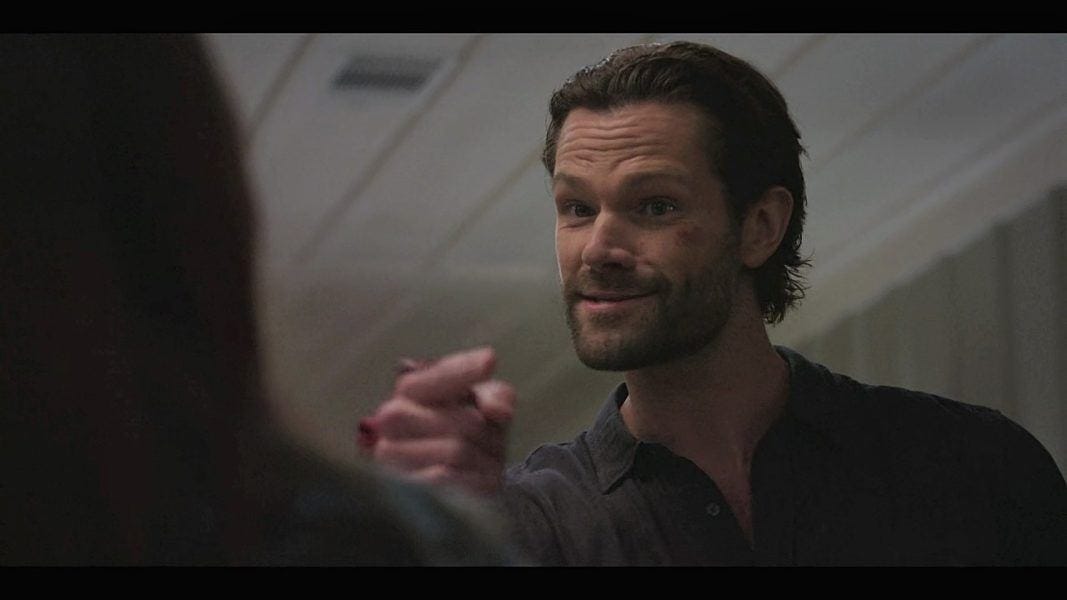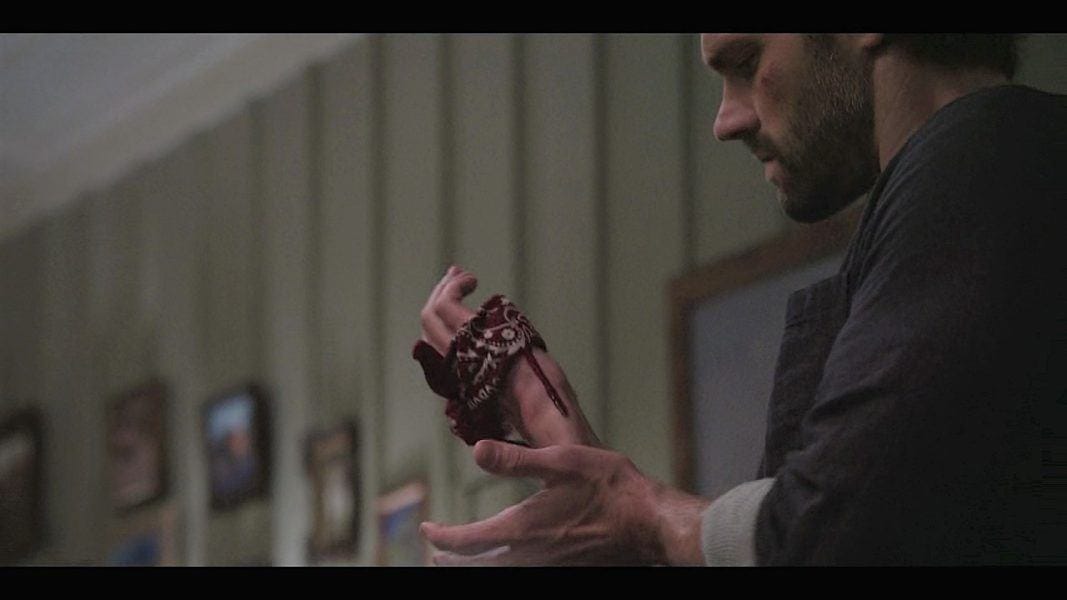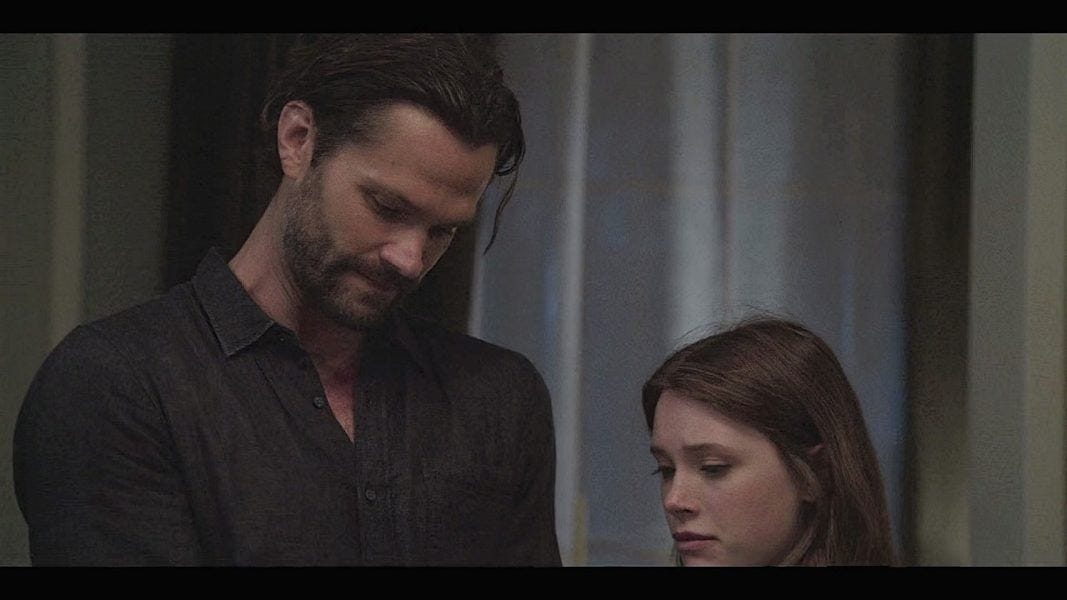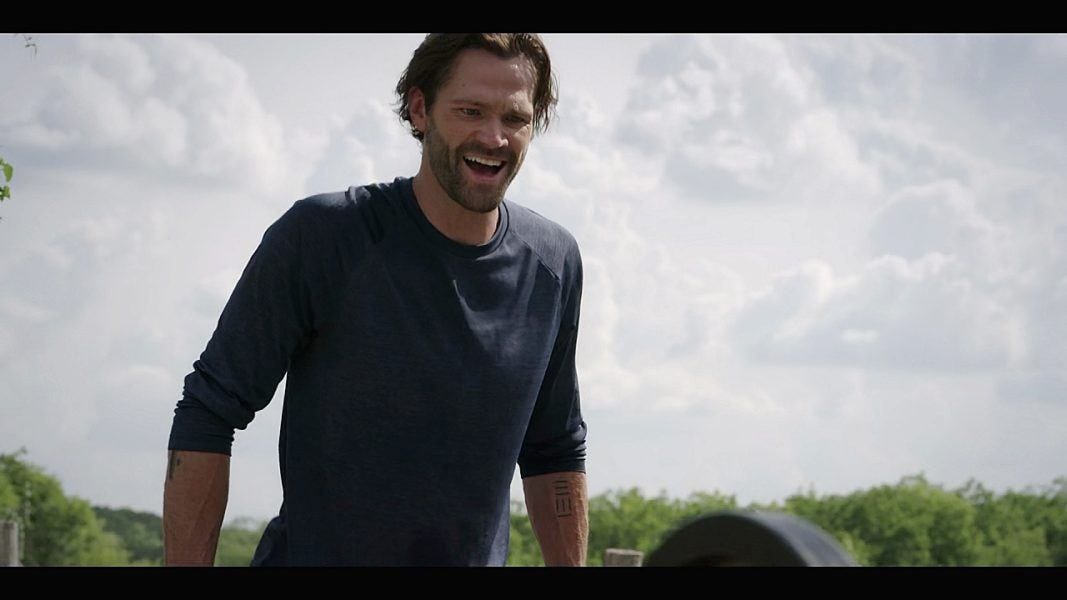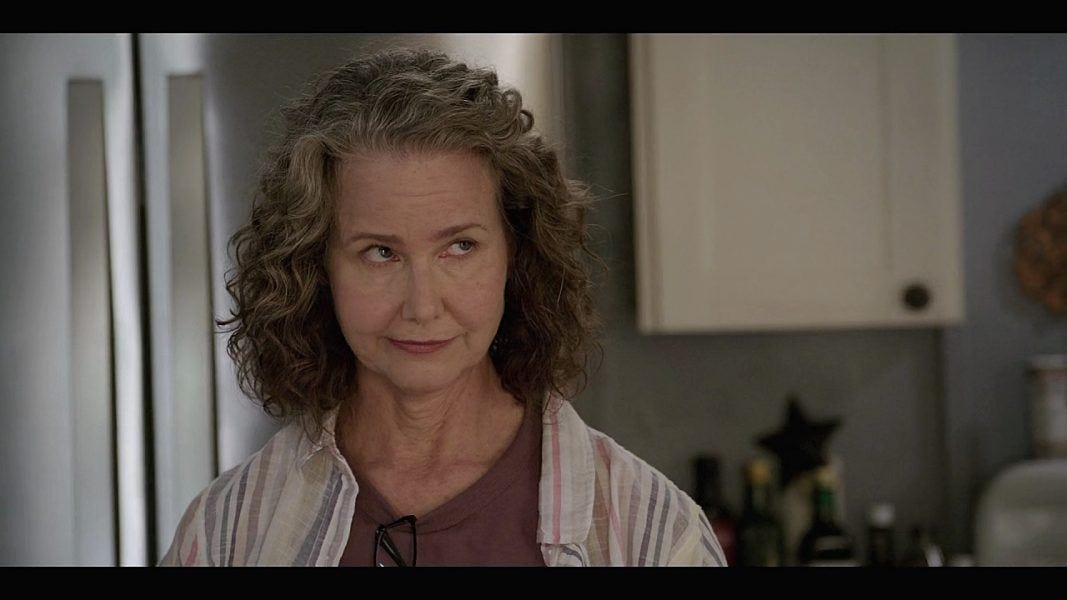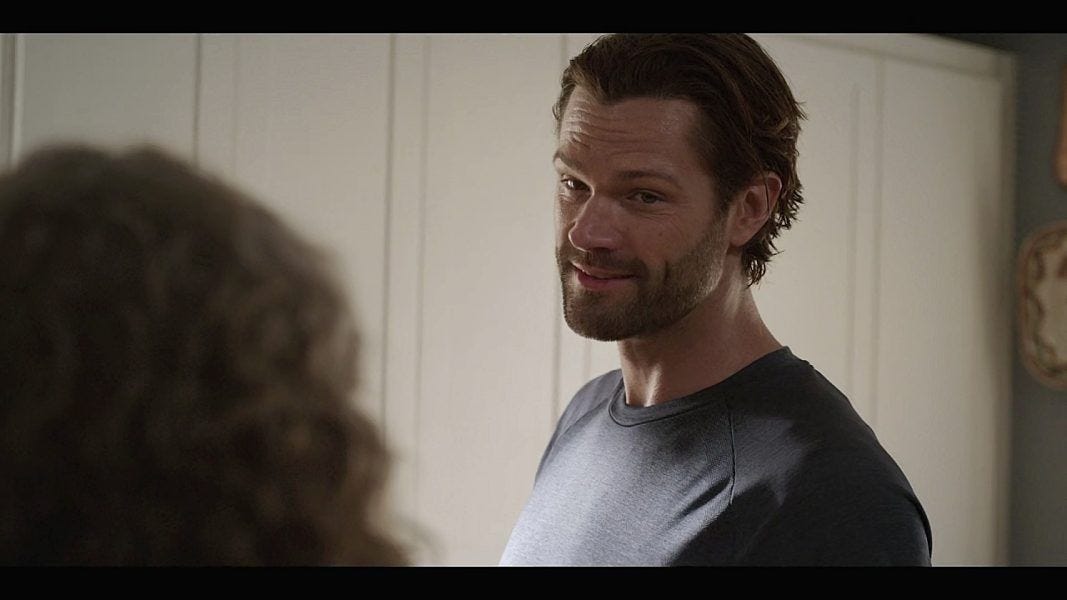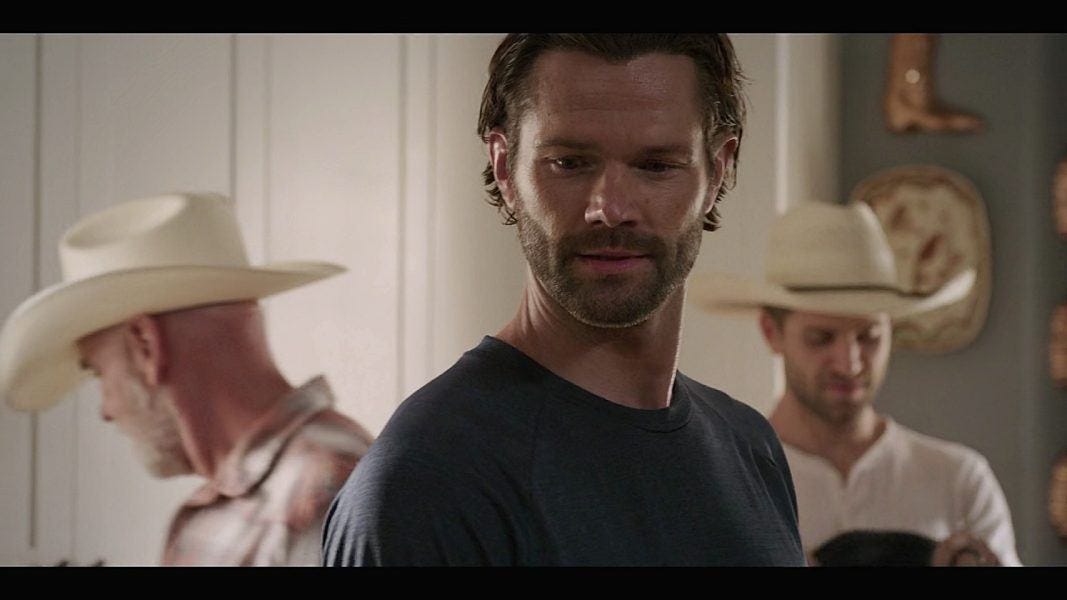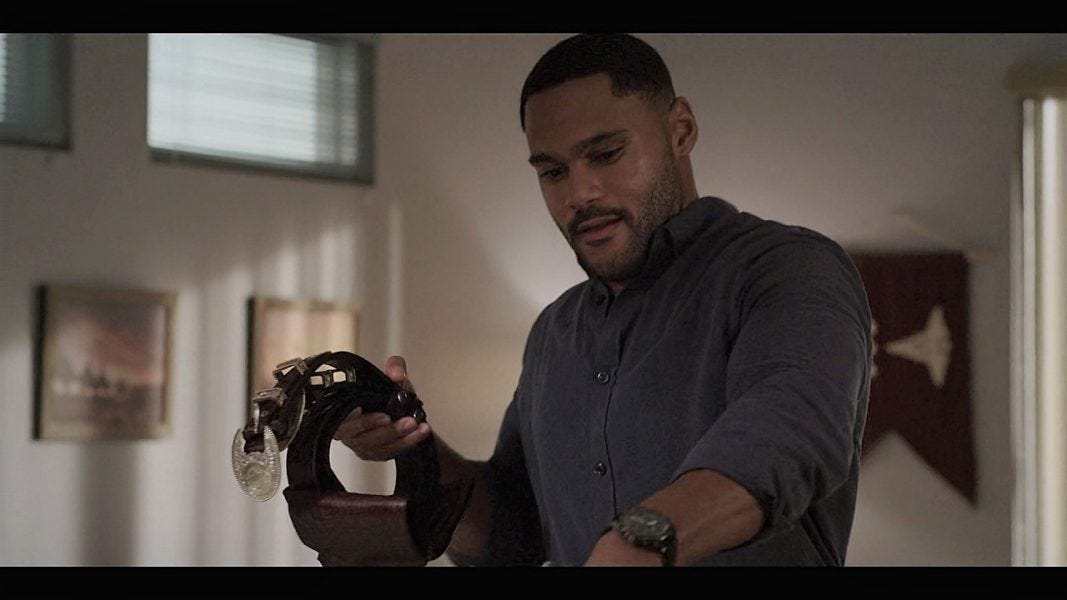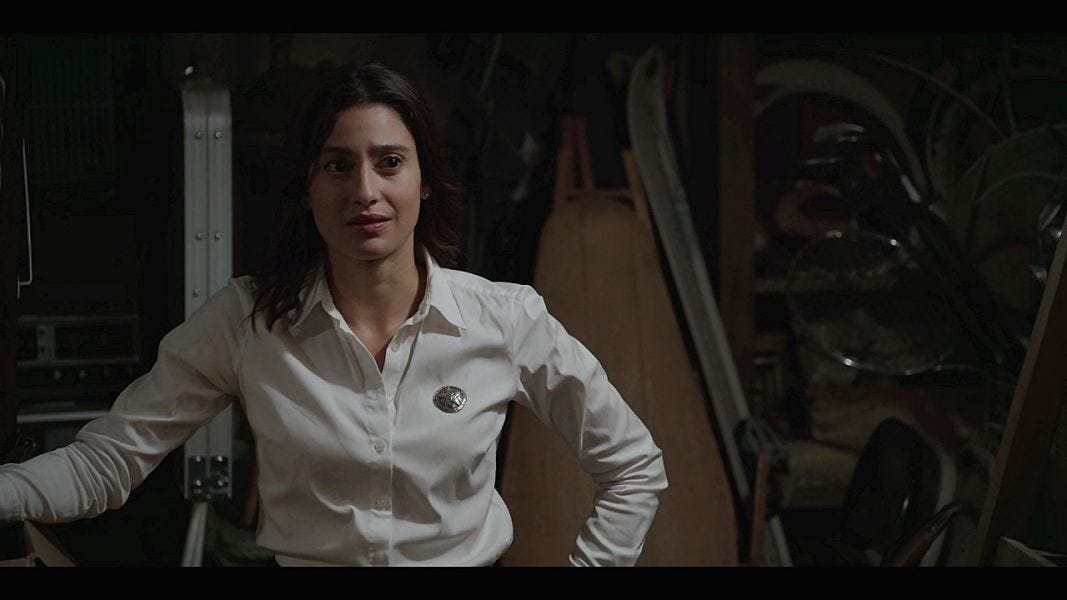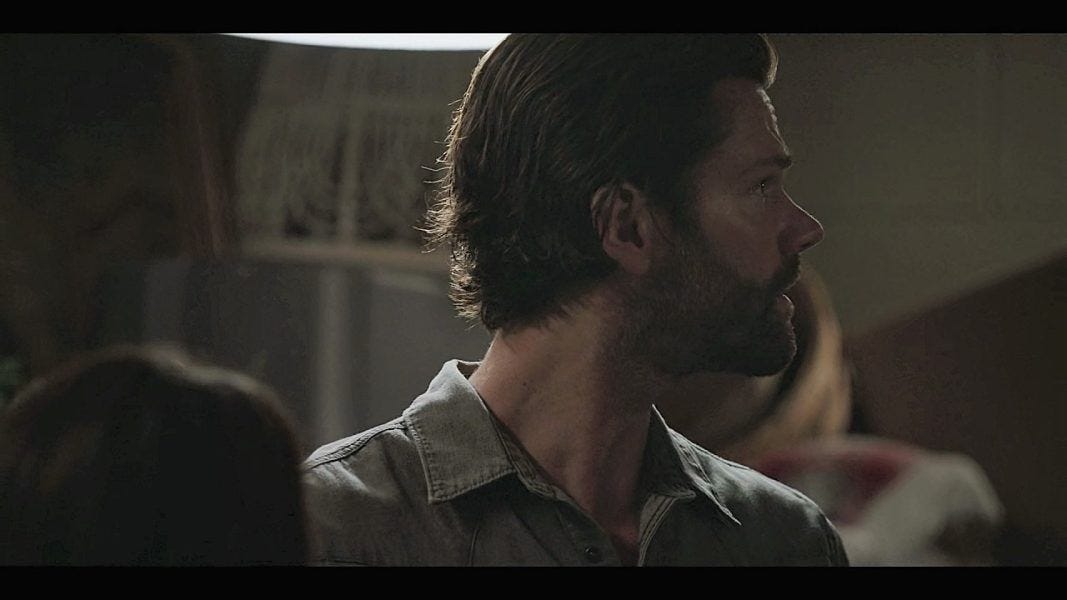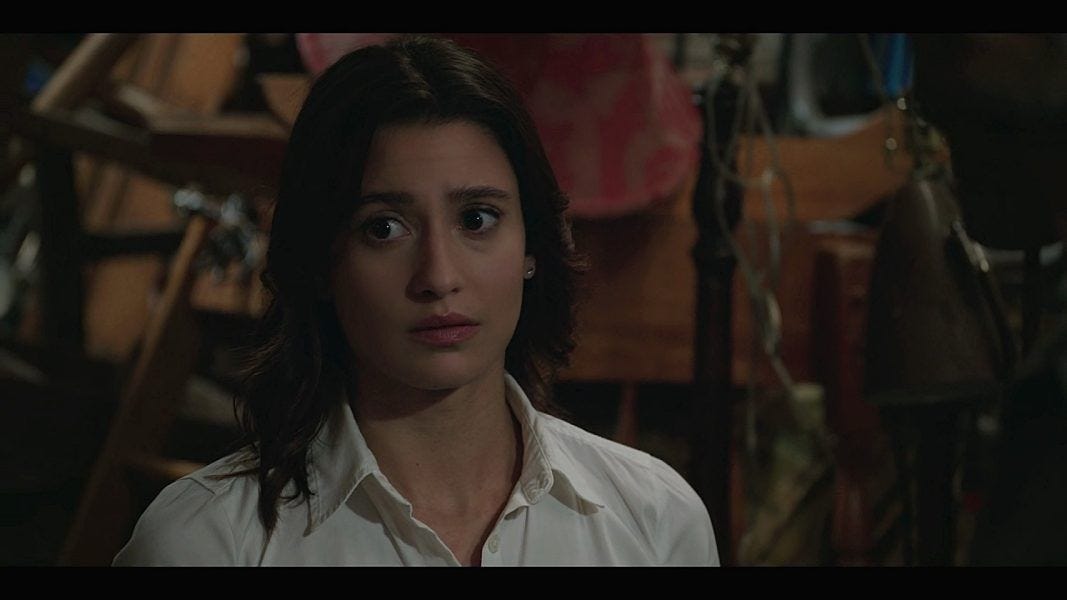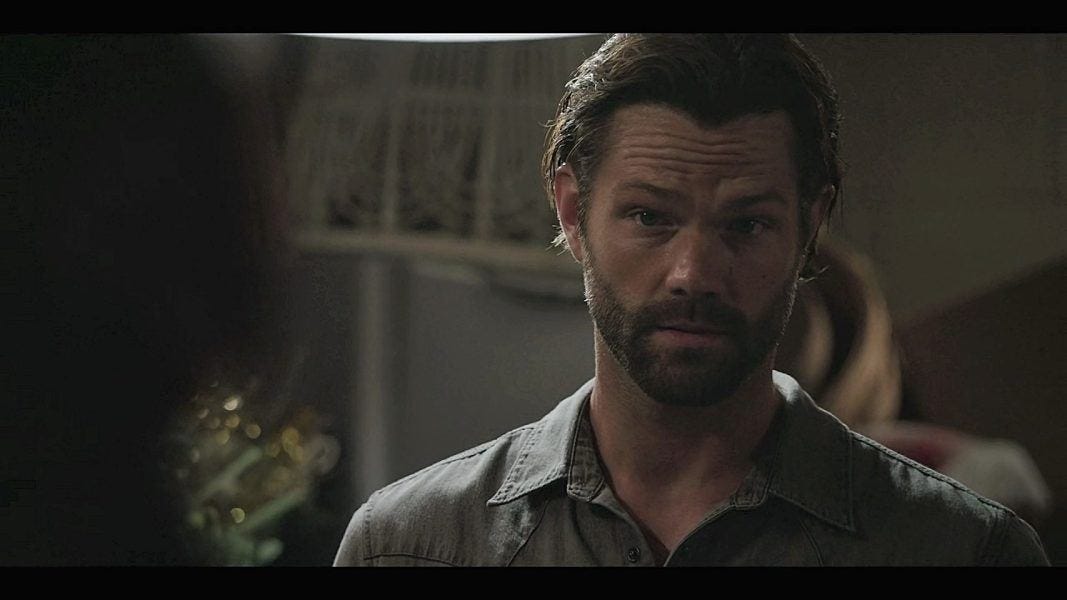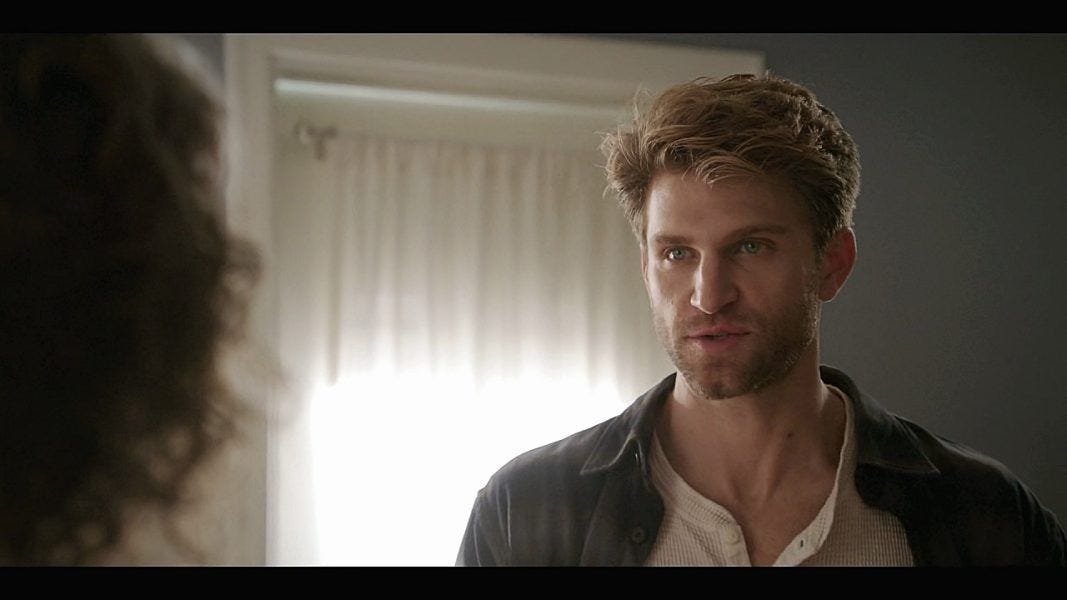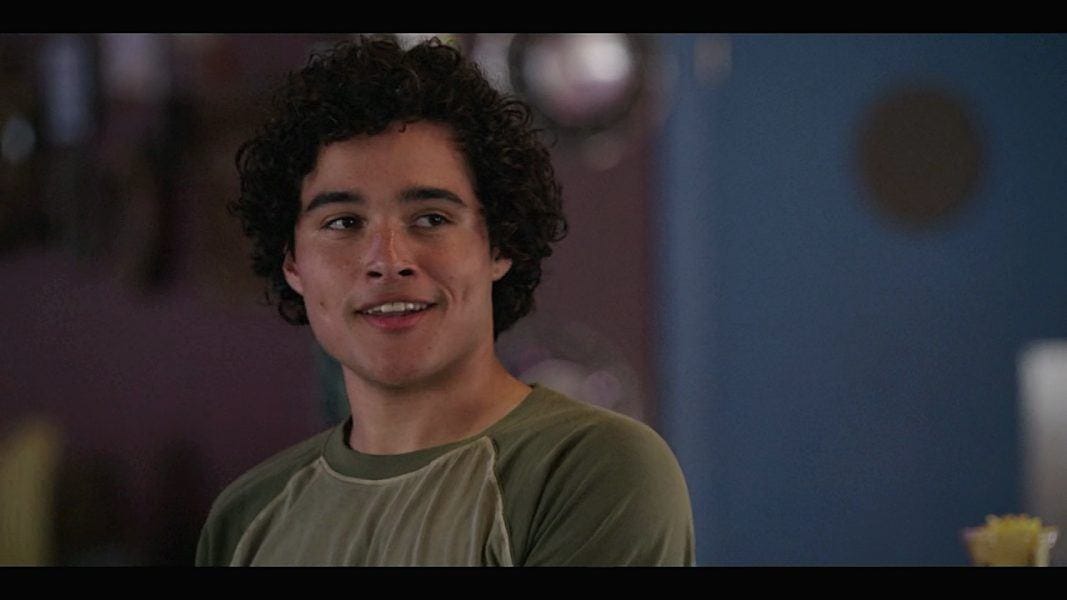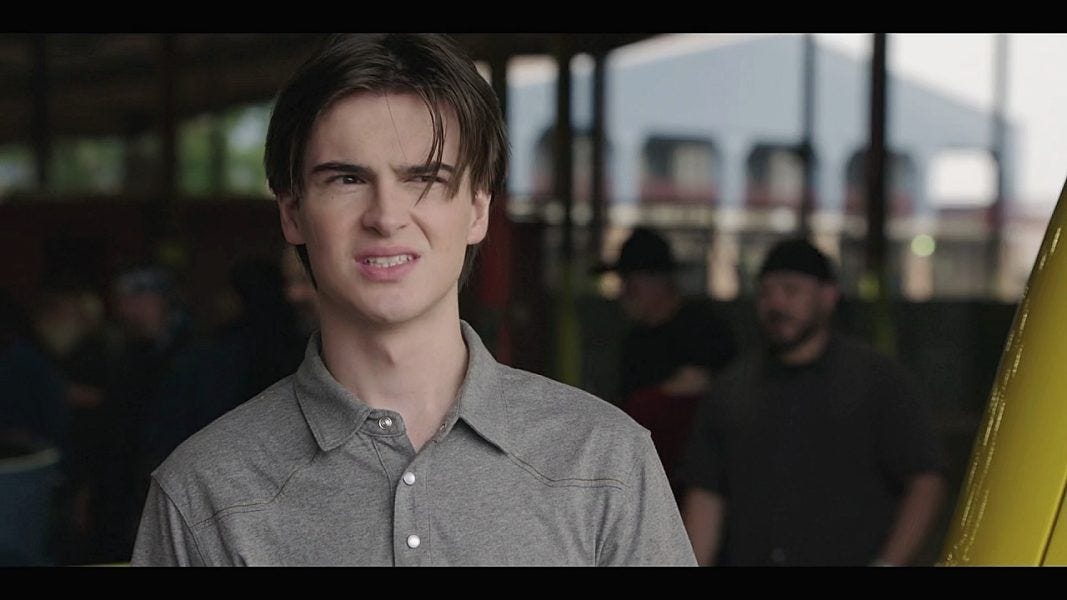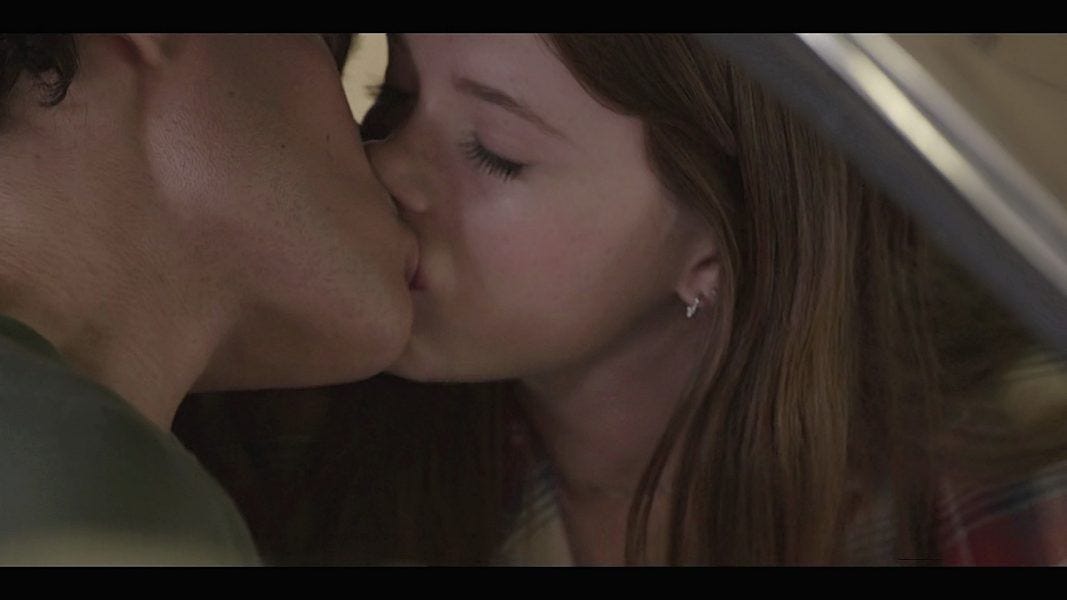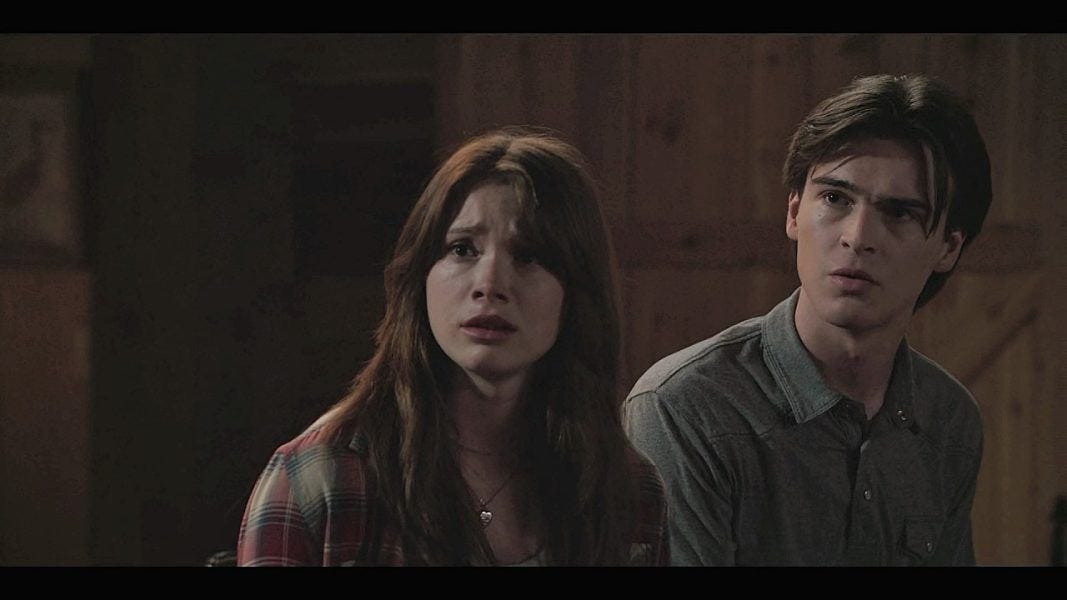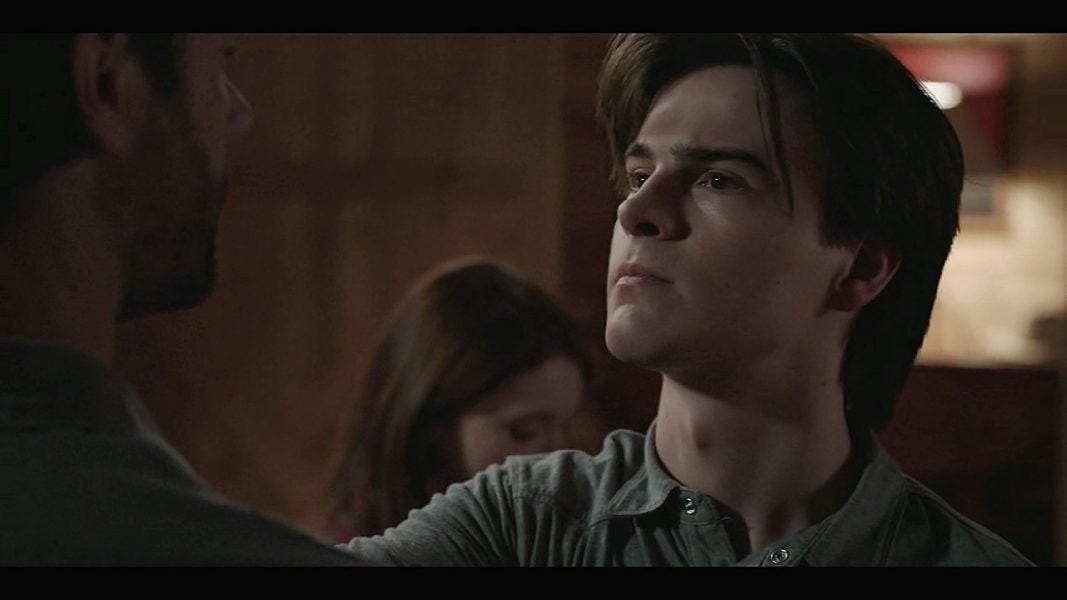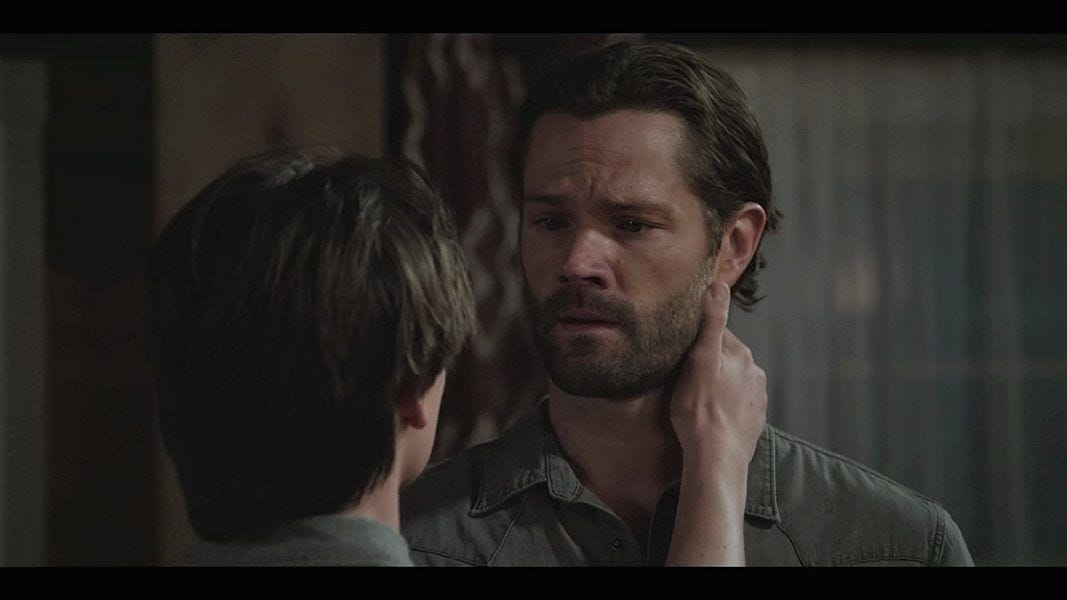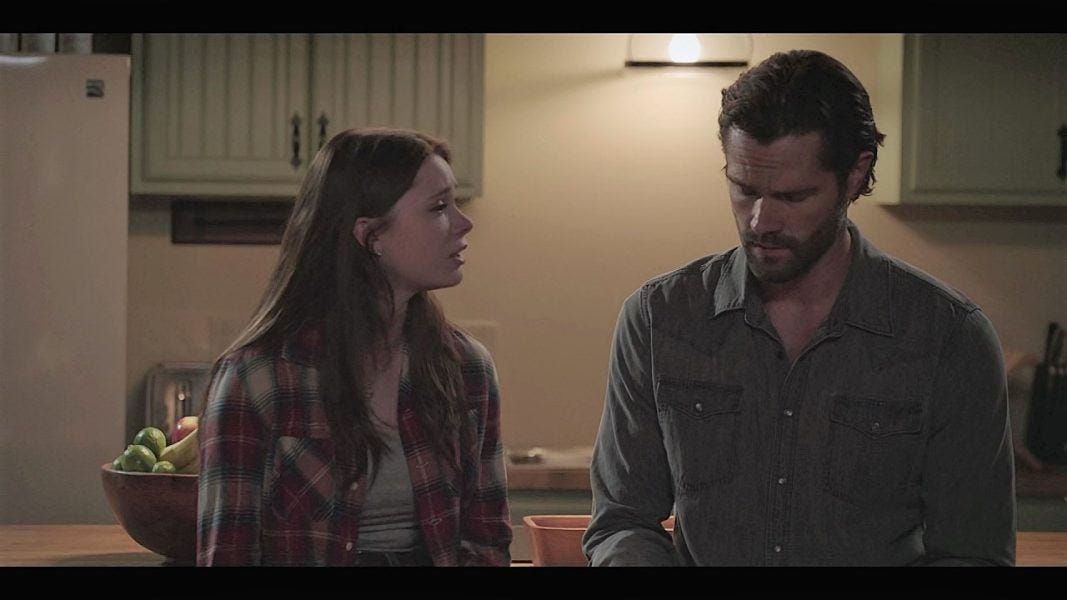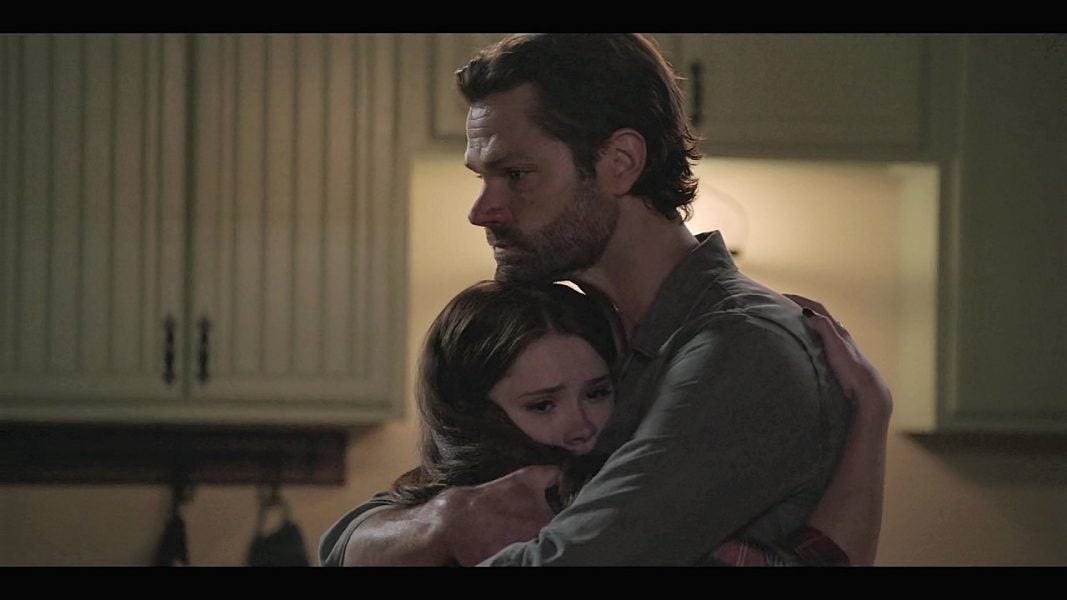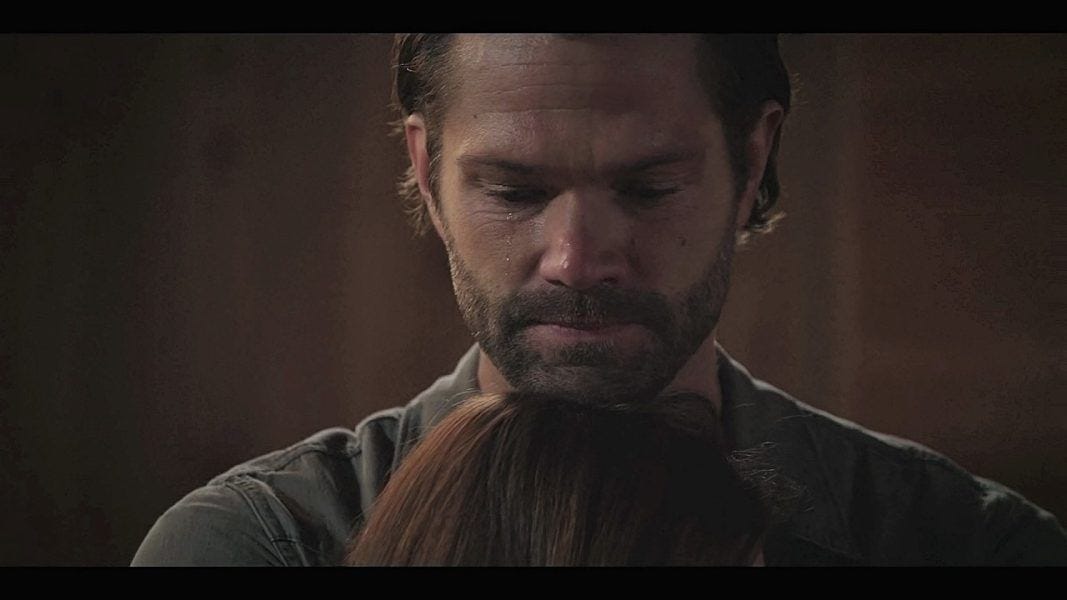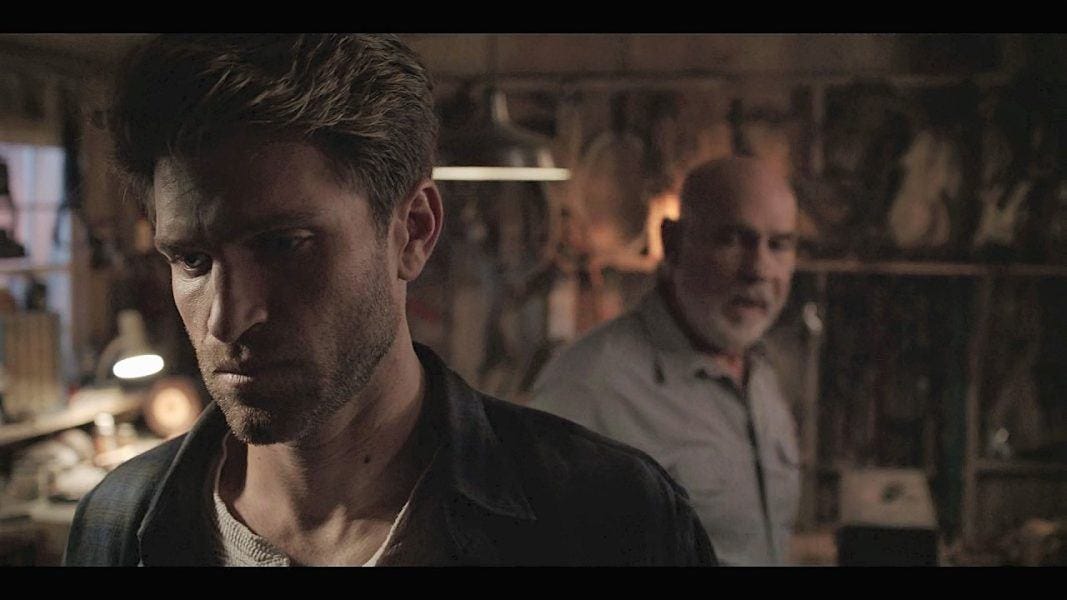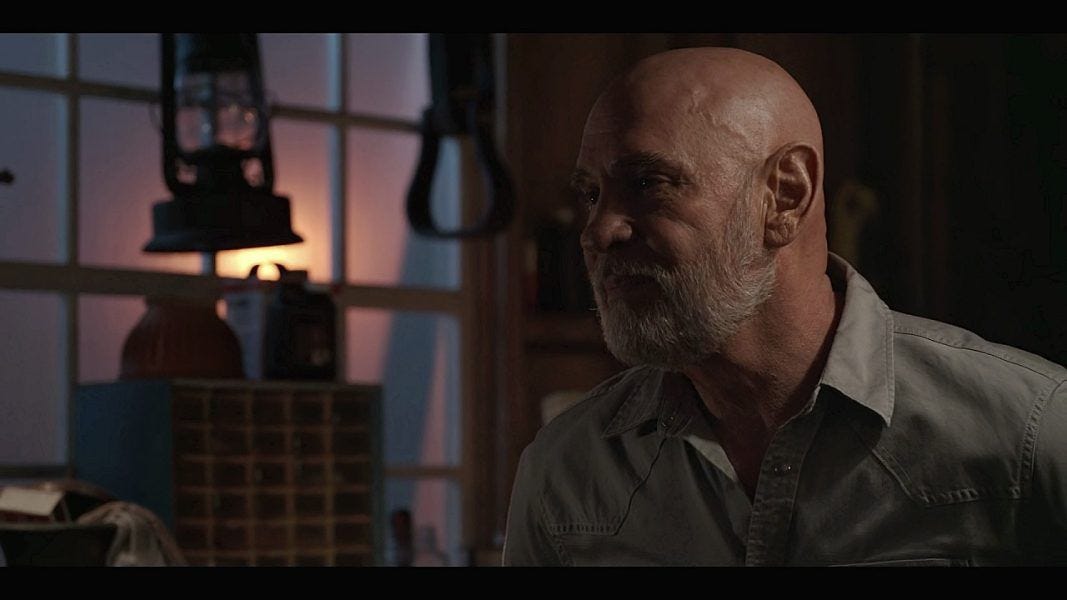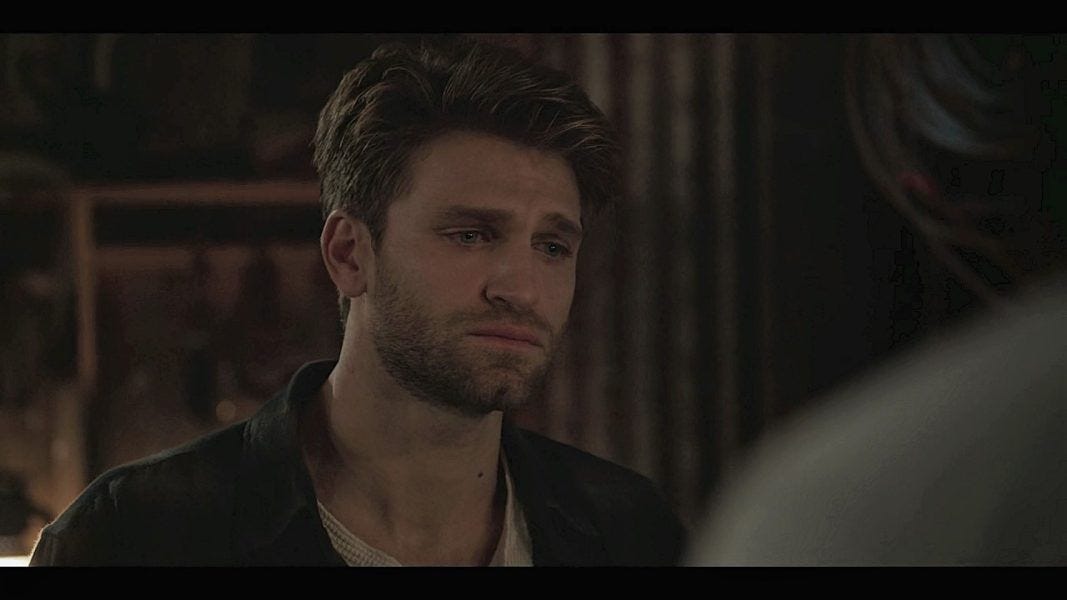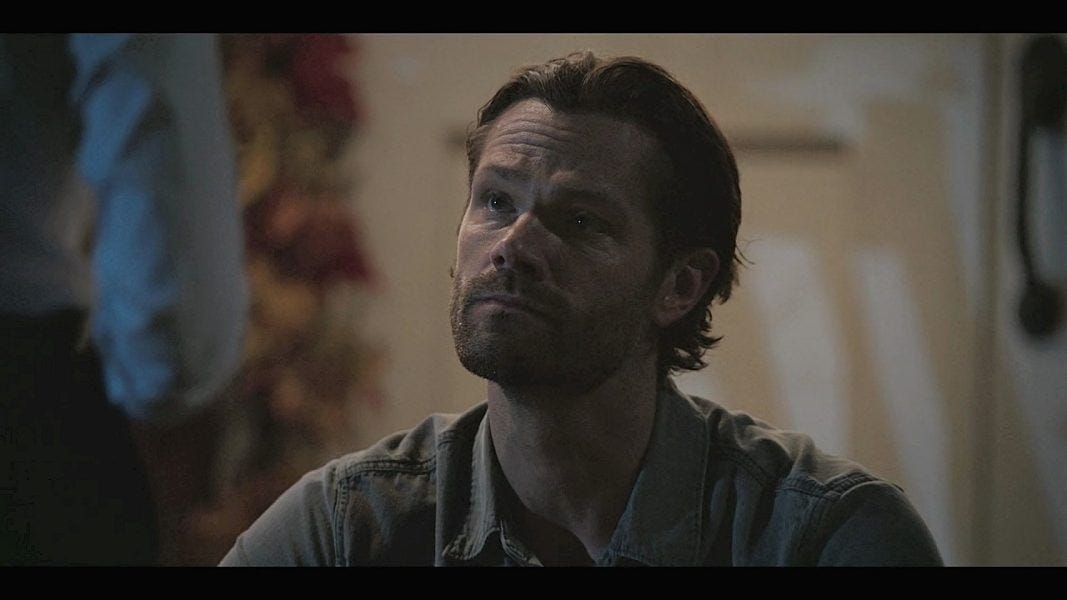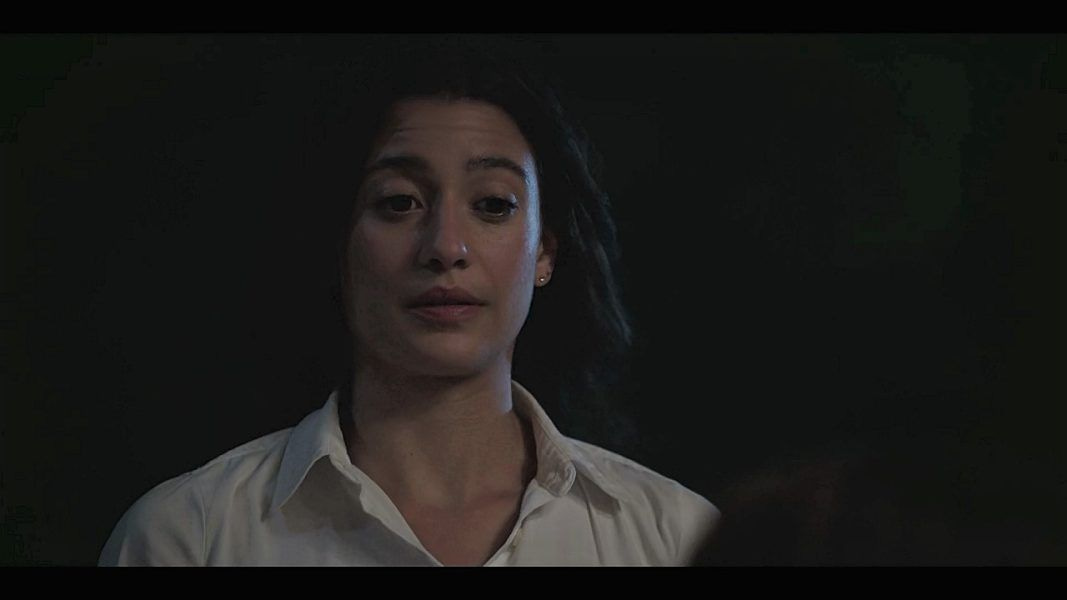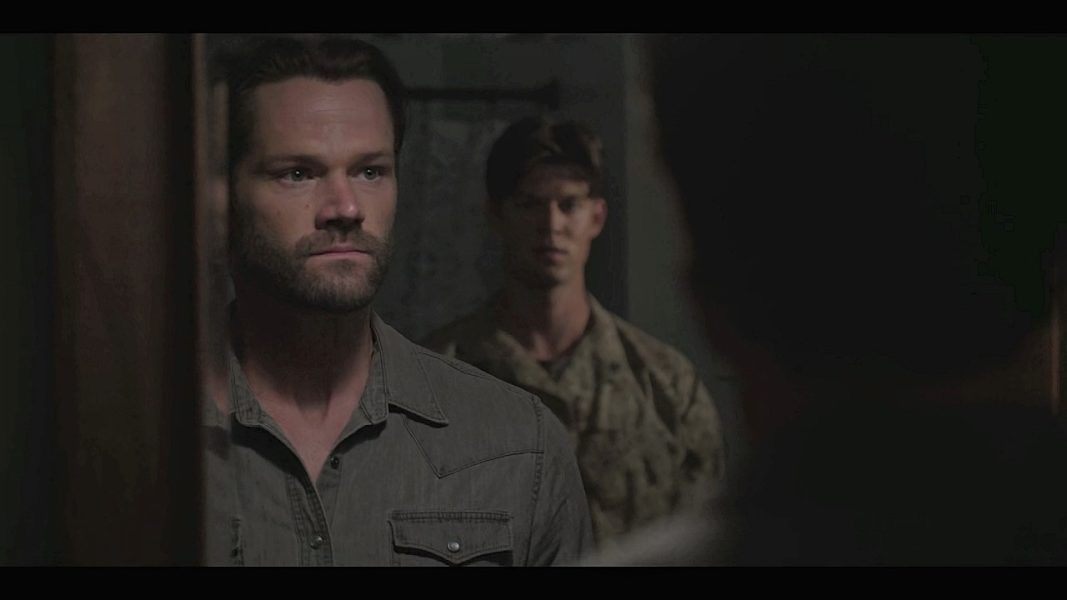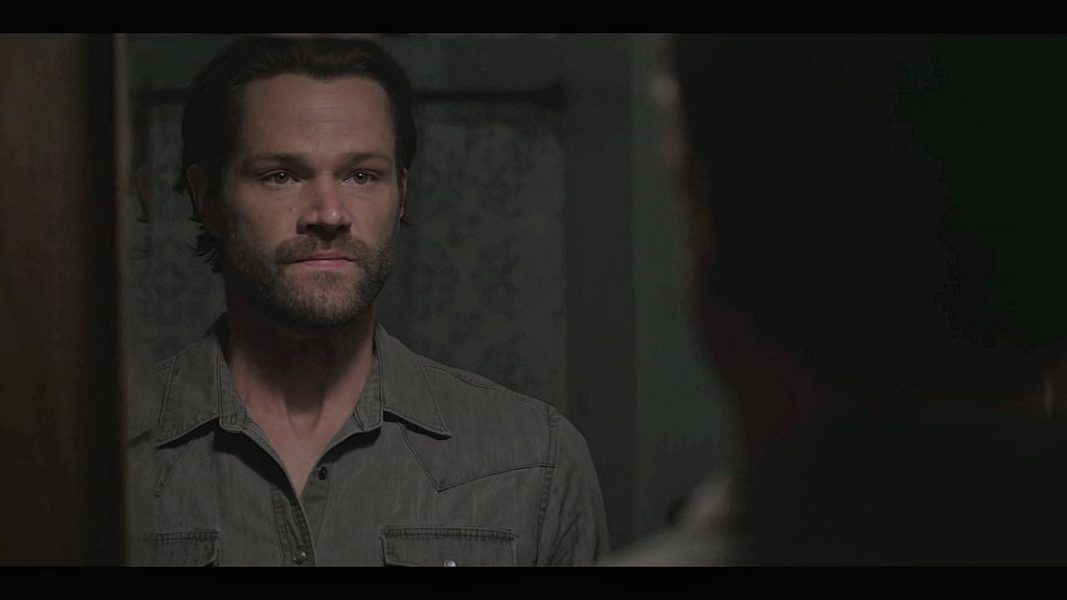‘Walker’s’ Rubber Meets the Road Takes An Unflinching Look at Trauma
Click to read the full story: ‘Walker’s’ Rubber Meets the Road Takes An Unflinching Look at Trauma
Last week’s episode of “Walker” was one of my favorites so far – and more than that, it felt important. I talk a lot, as a psychologist, about the ways in which fictional media can help us, in everything from providing a much-needed escape, to role models and inspiration, to giving us a way to work through our own ‘stuff’ in a safely displaced manner. The latter is what this episode of “Walker” did.
Aptly titled ‘When Rubber Meets the Road,’ the episode picks up where the first two episodes left off. The brothers Walker, traumatized from captivity and terror and torture, are now physically safe. But that does not translate to any kind of psychological safety, as Liam tries to confide to his big brother.
He says what I said in last week’s review – they should have taken both of them to the hospital, and yes, they should have had MRIs and I find it hard to believe they wouldn’t after those beatings.
“Every time I close my eyes…” Liam begins, but Cordell cuts him off, saying they don’t need to do any of that, that the threat is over.
That’s the last thing Cordell wants to do, to close his eyes and relive the trauma. He’s been trying to perfect not doing that for a long time, it turns out.
Cordell: You’re safe, I’m safe, so let’s not compare notes.
Liam protests that they need to talk about it, but Cordell disagrees.
Cordell: We don’t. It’s better this way.
Liam’s helpless sounding “maybe we have internal injuries” is spot on. They may not be physical injuries that you can see, but both men are deeply wounded internally, psychologically, and emotionally.
Cordell cannot go there, and that’s intensely hurtful to Liam, who keeps trying to reach out to him throughout the episode. The imagery of Cordell walking away from Liam is repeated, as though he’s turning his back on his little brother (he isn’t, but the image is nevertheless painful.)
Geri is there to console Cordell and he appreciates it, but also immediately makes a joke about his falling-off shirt.
Cordell: You’re not digging the deep V?
He deflects from her concern for him by asking about everyone else and how they are. And while that’s certainly relevant, because this was a trauma for all of them, it also keeps the focus off Cordi opening up about his own feelings to someone who clearly wants to listen.
We know they’re there, though, just under the surface – we can see it in his expression when he sees the old photo of him in the Marines on the table as he comes home, hearing in his mind “so this is the war hero…” that they taunted him with.
Abby almost made me cry with the hug she has for him and that smile on her face that I can just feel, but he pushes away his mother’s concern too, assuring her ‘I’m good, I’m good…no feelings, no feelings…we’re fine, we’re safe – right, Stinker?”
Liam is so clearly not fine it may as well be written all over him. He manages a “yeah, something like that” and if Cordell was able to really listen and not so invested in needing to NOT talk about all of it, he would have realized instantly. Again the “no feelings, no feelings” is a direct indication of what Cordell is telling himself, trying frantically to keep all those unwanted emotions at bay.
Instead, Cordell deflects again, insisting on making the speech for Stella’s graduation dinner that he would have made if things hadn’t gone sideways, even though everyone can see that’s a weird thing to do.
Bonham: You sure you’re ok?
He’s so obviously not okay, manic almost, that it’s a terribly awkward speech with everyone uncomfortable and nobody laughing at his bad jokes. Stella finally interrupts him with an “uhh, Dad…” because he’s bleeding right through his wrappings he’s squeezing his fist so hard.
Shades of Sam Winchester and the wound on his hand that he used to try to ground himself after similarly traumatic experiences.
Cordell insists it’s not a big deal, and Stella moves into almost the mom role, alarmingly parental for a moment as she wraps his wound and tries to both calm him down and stop his performance, saying thank you Dad, it’s good to have you home.
I felt so bad for Stella at that moment, knowing that there’s something very wrong with her father and not knowing what she can do about it. Especially after losing their mother, Cordell is the only parent that Stella and Augie have, and their fear of losing him has just been kicked into overdrive. Are they now going to lose him to his own demons?
A music montage clues us into the passage of time, which apparently is most of the summer. Liam and Bonham talk ranching and cattle, Cordell and Augie work out and take whey protein, lifting weights, bonding over it.
You have to wonder if that’s their way of trying to feel some sense of safety again, like if they’re just physically strong enough, strangers won’t pluck them from their driveway and subject them to unspeakable torture. It may not make logical sense, but it’s a way of coping that’s allowed under current norms for masculinity, when many other ways of coping are still not – like talking about it.
Julia published her expose on what happened to them, which brings the horrible details of what Liam and Cordell went throughout in the open, traumatizing Abby and the rest of the family all over again. Cordell shrugs it off like it’s no big deal, saying the words “in captivity” with seemingly no problem and cutting his mother’s concerns off with “I’m tip top, Mama.”
She doesn’t believe him; neither do we.
Every time he trots out his “toxic positivity,” his kids walk away. Sometimes literally. His inability to open up to them, or anyone, about his feelings has created an emotional separation between him and his family, cutting him off from the support he desperately needs and deserves.
The directing by Aprill Winney is top-notch in this episode. Images like this used to set Cordell apart from his brother and his father in their matching rancher hats.
They’re not the only ones who are skeptical. Trey, almost done with his Ranger training, has also read the article, and so has Cassie. She wonders how someone comes back from something like waterboarding and electrocution, not convinced that even the mandatory therapy and PT that he’s doing will be enough.
Trey advises her to be sure that Walker really is “squared away”, otherwise as his partner she’s in danger too.
(I did, by the way, as a therapist myself, wonder what the therapist he was mandated to see was doing during this time to try to help him….you can’t rush this kind of work, but you also need to notice when a coping strategy is kicking a client in the butt rather obviously.)
Cassie helps Cordell collect stuff for the big camping and college trip, finding a box of his stuff from the war. She asks him to be real with her.
Cordell: I’m squared away.
Cassie admits she’s afraid to get back in the truck with him, that she needs to feel safe with him and “this guy, he doesn’t make me feel safe.”
It’s tough to hear, but I also don’t blame her. Cordell is hypervigilant and twitchy, easily distracted and not in touch with his own emotions, one of the best sources of information any of us has in reacting to our environments. In their line of work, that could be deadly. That’s very clear when Cordell interrupts their conversation to ask, “you hear that?”
It’s water dripping; he has a flashback to being doused with water and repeatedly, brutally electrocuted. Although he insists he learned from his mistake of going back too soon after the Rodeo Kings, and that’s why he’s doing the therapy and the PT, Cassie is still anxious.
Liam doesn’t even pretend to be okay. He’s brittle and angry, unable to share his feelings with the one person he knows would understand – his brother who was right there with him – but Cordell has pulled away from him. He laments that “little brothers are used to getting the short end of the stick” and tells Cordi that despite what he promised, it hasn’t gotten easier. Cordell’s insistence that everyone is dealing with it in their own way doesn’t help him – nor does Cordell’s constant repetition that he’s “all squared away”.
It is true, by the way, that everyone does need to deal with trauma and loss in their own way, and there’s no set timetable for doing that. Cordell is right about that, it’s just that the strategies he’s using right now aren’t working for him very well.
Liam lashes out at his mother, accusing her of prioritizing the way Cordell wants to deal when he was there too. I cringed when she said that they’d “found an equilibrium around here, a fragile one.”
That was so painfully realistic, because that happens all the time. No one wants to upset the one who’s not dealing well, so the one who seemingly is dealing better is expected to suck it up to keep that fragile equilibrium. Which of course isn’t fair, and ultimately just perpetuates things not getting better. I like when the Walkers aren’t perfect; it feels so much more real.
Liam: By all means, let Cordell dictate how everyone has to act, because that’s what’s best for him. So glad I’m a priority – I was in there too!
He was, and he clearly needs and deserves a lot more help than he’s getting. Unfortunately, he also seems stuck on his brother being the only one who can give that to him, and Cordell can’t do it.
I like that Geri feels like a part of both what’s left of the Davidson family and also, the Walker family, settled in as Aunt Geri to Colton, which I feel like both of them needed. Dan is, to my great delight, still around too at least for a while – he’s healed his relationship with his son and is also going to give it another try with Denise, something that Colton is happy about.
That means he’ll be out of town for a while, with Colton staying with Aunt Geri. But things seem to be okay between the formerly feuding families – Denise the deer is even back on the wall at the Side Step, something Denise herself insisted on.
Colton is worried that his relationship with Stella might not survive her going to college, so he goes along eagerly with the silliest part of the episode – Stella insisting on trying to get the Mustang back from “S-Nines,” who has been racing her at Desert Speed Wars. The kids are so worried about their dad that they refuse to tell him what happened with the car, convinced he can’t handle it, pretending it’s been in the shop for two months. In reality, they decide to steal the car back from the speedway.
This whole storyline is just plain dumb and I’m glad it’s over.
Augie distracts the woman and her brothers while Stella and Colton try to pull off their “grab and go”. They have an unlikely-at-that-time serious conversation about her going away to college too, and she assures him she’s not breaking up with him. Then they bond over hot wiring the car, which again seems like an unlikely time for romance.
In the end, they get caught anyway when the woman remote shuts off the engine. As a last resort, Stella confronts her and tells the truth – how her late uncle gave the car to her late mom and what the car means to their family, and how she doesn’t even want to go to college and wishes someone would bother to ask her that.
Not very realistically, the woman gives the car back, suddenly becoming empathic.
Stella and Augie are in for a rude awakening when they drive back up to their house though, confronted by their very angry father. He confronts them about keeping secrets, saying he thought they were over that, and Augie retorts “yeah, so did we.”
This whole scene is just beautifully written and performed by every single one of the actors – Jared, Violet and Kale. Stella gently tells her dad what is obvious to them, that ever since that horrible homecoming dinner, he’s been putting on a show.
Cordell: I am squared away…
Neither of his kids buy it. Stella says that’s why they couldn’t come to him about the car, fearing that if they were the ones to burst his bubble if he spiraled and got hurt because of it, they’d never forgive themselves.
Stella: We were afraid the mustang would break the dam.
It’s a perfect description for what’s happening with Cordell – he’s repressed all those fears and memories and grief, kept it inside a bubble, put up a dam around it. And if that bursts, he’s terrified he won’t survive it – and his kids are terrified of that too.
It’s a pretty common reaction to trauma and loss, and temporarily it can even be protective. But when it goes on and on, it starts to interfere with relationships, with work, with sense of self, with sense of safety. It’s all too fragile, and the person knows it.
Poor Cordell, he so wants to do the right thing by his kids, and he’s so helpless in the face of these horrible unfair things that have happened to him. I love that the show is not just putting it all on this most recent trauma either, because it’s not just that. It’s whatever happened in the war too, that he’s never been able to deal with. It’s the violent loss of his wife. It’s what he’s seen and done in his job, from Rodeo Kings to watching people die, to killing some of them himself. That’s all trauma, and it all adds up.
Augie: Look at you now, dad. Those kidnappers took a piece of you, and we just didn’t wanna lose any more.
Cordell is truly crushed.
Cordell: I had no idea y’all felt this way. I never want either of you to feel like there’s something you can’t tell me.
Stella says in that case, can Augie give them a minute. Cordell’s youngest, almost as tall as his dad now, hugs his father, gripping his neck so he’ll listen, says “I love you.”
Jared Padalecki and Kale Culley both are amazing in that moment, showing us every bit of the son’s desperate love and need for his father to be okay and really hear him, and the father’s love for his son and desperation to be okay for his children. August has grown up so much, the gestures almost more of a brother-to-brother interaction than father and son and inevitably reminding me, as an avid “Supernatural” fan, of all those times Dean Winchester gripped his little brother Sammy that same way, to get through to him, to show his love.
I might have needed to grab a tissue at that moment.
Stella and her father sit down, and Cordell speaks first, saying “you don’t wanna go to college, do you?” He says he had a feeling he wasn’t the only one keeping up appearances all summer.
Stella: Are ya mad?
Cordell says no, just confused, but Stella says that her mom wanted her to go, he wanted her to go… her? She’s not so sure. Cordell is understanding, asking her what she does want to do next, saying that it’s her future. Stella says that when her father was taken, suddenly college felt really small.
That too was great writing – and acting. Trauma does that, puts everything else into a completely different perspective. It’s so BIG, it recodes everything else. Things that seemed important no longer do.
Cordell gets it.
Cordell: Okay. Then we’ll figure it out…together.
He holds his daughter, a tear spilling and trailing down his face. All the awards for the acting in that moment, Jared Padalecki. All of them.
Bonus points for that being a “Supernatural” reference, something Sam and Dean said to each other again and again and again in order to keep going through anything life threw at them – and it threw at them everything but the kitchen sink. I may have needed a tissue myself, not gonna lie.
Liam finally gets to open up to someone, but it’s not Cordell. Unexpectedly, it’s his father. Bonham is mired in a bunch of toxic masculinity messages from the time in which he grew up and the place he grew up in, but he fights hard to push those aside when he knows he needs to for his family. Toxic masculinity and intergenerational trauma be damned!
Bonham: William, hold on. Sit down. We’re gonna do this exactly once. Your mother’s idea so, if we both leave this room feeling uncomfortable, we can blame her and stoically go hammer fences.
I loved that line – it both acknowledges those harmful norms for “masculine behavior” and subverts them. Maybe not easily or comfortably, but damn it, Bonham is gonna push through. He shares his own trauma history then, of coming back from the war and knowing he was back but still dealing with the flashbacks.
Bonham: I was back but it was like I could still smell the napalm. I thought, brews and banter at the VFW, that’s all I needed, because those people got it. I reckon that’s why you’re so fixated on talking to your brother.
This scene is gorgeously shot, the symbolism of the light in the window a hint at the hope that his father’s words are giving Liam – that it can get better. That it will get better.
Liam asks how he stopped the smell and Bonham says he met a woman – an equine therapist, with a horse that was as broken as he was. Liam is so hurt, asking why if Cordell is seeing a therapist too, why he won’t talk to Liam?
Bonham: I think every time he looks at you he sees the fresh hell of what you want through. But just because he’s not ready to talk doesn’t mean you don’t have to talk to someone. You hear me?
Bonham pats him on the shoulder, a manly pat instead of a hug, which was realistic in this situation, and leaves. Hopefully, Liam did hear him.
Cassie comes by to give Cordell a plate of leftovers, and Cordell admits that she was right to worry about him. That he’s working on it and promises he’s going to keep working on it.
Cassie: Well, that’s all I needed to hear. See you on Monday, partner.
Cordell comes inside, brushes his teeth and then startles, his younger self (aka Colin Ford) in the mirror.
Reflection: So, this is a war hero, huh?
As much as they all want it to be, Cordell’s ordeal is not over.
Kudos for the storyline of Liam and Cordell’s trauma and how their family is impacted, for both the writing and the acting and the directing in this episode. So many fans felt inspired by the story, some having felt like they too couldn’t speak up about what they’ve been through and yet aware of the price being paid for staying quiet about it.
I worked with Jared Padalecki as he was writing his chapter in Family Don’t End With Blood, in which he had the courage to speak up about his own depression and anxiety, and I know firsthand how many people have read that chapter and felt validated by it. This episode felt the same.
In “Supernatural,” Padalecki’s character Sam Winchester also endured repeated trauma but didn’t always have the story space to examine the aftermath as much as maybe the actor would have liked. As executive producer and star of “Walker,” here he has the space to do that, along with the writing team and fellow cast. Together they put together something special.
Thanks for that.
New Walker this Thursday on the CW!
The post ‘Walker’s’ Rubber Meets the Road Takes An Unflinching Look at Trauma appeared first on Movie TV Tech Geeks News By: Lynn Zubernis

